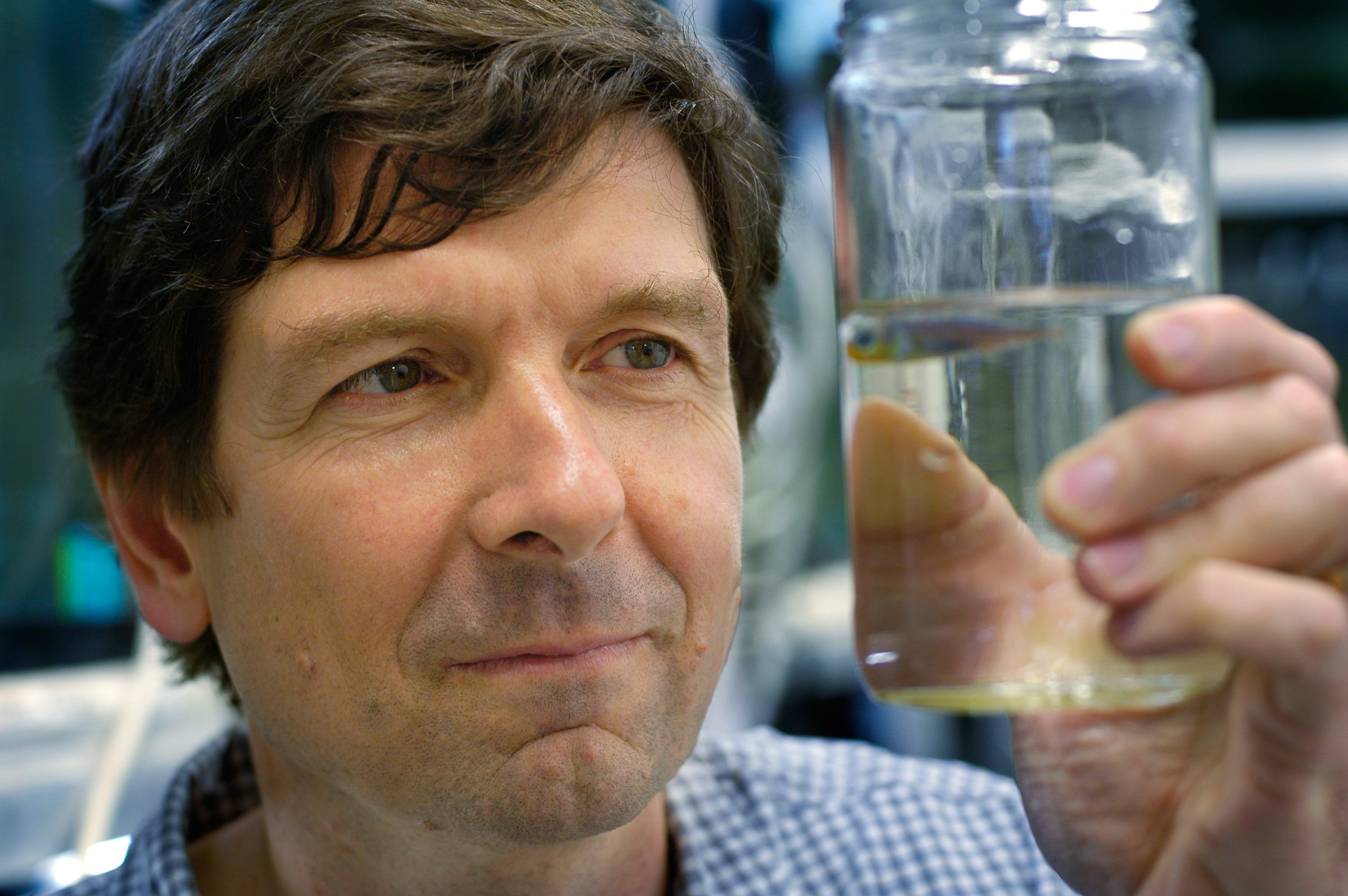UBC evolutionary biologist elected to US National Academy of Sciences
May 2, 2017

May 2, 2017

UBC biodiversity researcher Dolph Schluter, a leading expert in the evolution of ecological diversity, has been elected a foreign associate of the US National Academy of Sciences.
Schluter is among 84 new members and 21 foreign associates elected today in recognition of their distinguished and continuing achievements in original research.
Five UBC Science researchers have been elected to the Academy—widely regarded as one of the highest honors that a scientist can receive.
Schluter’s earliest work was carried out on Darwin’s famous finches in the Galápagos Islands. His lab has gone on to investigate the ecological forces that drive the rapid origin of new species and allow them to persist, the genetic basis of species differences, and the wider ecological impacts of adaptive radiation. Much of the team’s work has relied on the use of stickleback fish, an ideal model species for research on evolution and population genetics.
The Royal Society of London, the American Academy of Arts and Sciences, and the Royal Society of Canada have recognized Schluter’s research. He received his Bachelor of Science from the University of Guelph in 1977, and his Doctor of Philosophy from the University of Michigan in 1983.
The National Academy of Sciences is a private, nonprofit institution that was established under a congressional charter signed by President Abraham Lincoln in 1863. It recognizes achievement in science by election to membership, and — with the National Academy of Engineering and the National Academy of Medicine — provides science, engineering, and health policy advice to the federal government and other organizations.
Those elected today bring the total number of active members to 2,290 and the total number of foreign associates to 475. Foreign associates are nonvoting members of the Academy, with citizenship outside the United States.
We honour xwməθkwəy̓ əm (Musqueam) on whose ancestral, unceded territory UBC Vancouver is situated. UBC Science is committed to building meaningful relationships with Indigenous peoples so we can advance Reconciliation and ensure traditional ways of knowing enrich our teaching and research.
Learn more: Musqueam First Nation